Who doesn’t love the Bichon Frise dog breed? These delightful little dogs have captured the hearts of dog lovers around the world, and it’s easy to see why. So, if you’re curious about these adorable dogs or are trying to decide whether they’re the ideal dog for your family, look no further. We’re going to dive into the world of this breed and discuss some of the most interesting Bichon Frise facts, you won’t be disappointed.

The 15 Bichon Frise Facts
1. They’re a Hypoallergenic Dog Breed
People often consider the Bichon Frise to be hypoallergenic, making them a popular choice for individuals with allergies. However, no dog is completely hypoallergenic; the amount of allergens a dog produces varies between individual dogs and does not depend on the breed. Bichon Frises, like Labradoodles, are low shedding, and their hairs get caught in the undercoat, resulting in fewer allergens dispersed throughout the house. But some people with allergies may still experience symptoms, albeit milder, when exposed to a Bichon Frise, so it depends on the dog and the individual’s sensitivities.
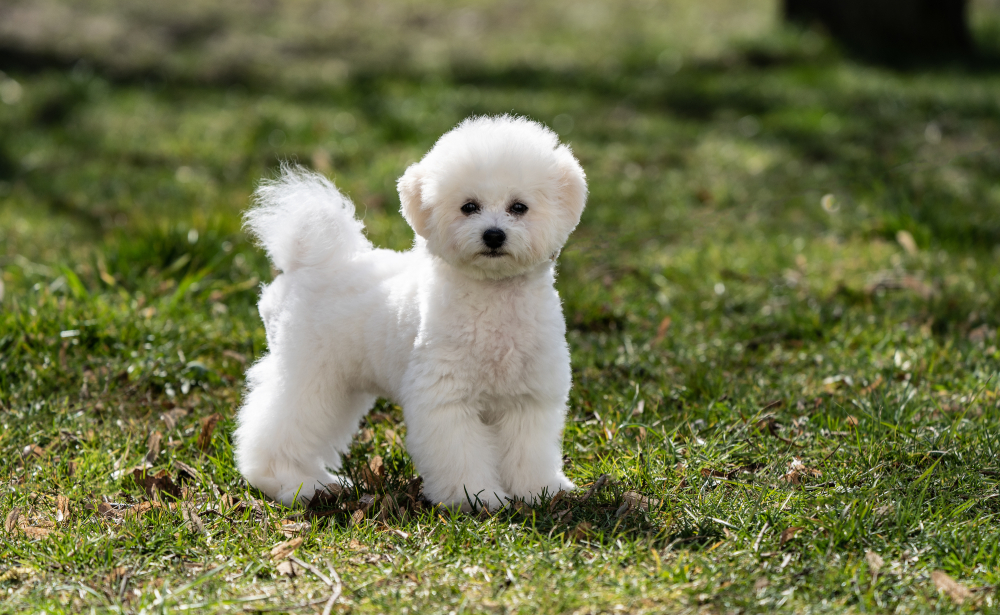
2. They Have an Interesting History
The Bichon Frise has a fascinating history that dates back centuries. Many believed that they originated in the Mediterranean region, specifically in Spain and Italy. These fluffy little dogs were highly favored by the nobility and were often seen in the courts of kings and queens. Their friendly nature made them the perfect companions for the aristocracy.
In the 14th century, Italian sailors discovered the Bichon Frise while exploring the Canary Islands. They were immediately captivated by the breed’s beauty and brought them back to Italy. From there, the breed basically spread throughout Europe and became popular in France, where they earned the nickname “Bichon à poil frisé,” which translates to “curly-haired lap dog.”
Over time, the Bichon Frise’s popularity kind of waned, and they were often found on the streets as stray dogs, believe it or not. However, in the 20th century, dedicated breeders worked tirelessly to revive the breed, and their efforts paid off. Today, these dogs are more popular than ever due to their adorable looks and charming personalities.
3. They’re Official With the AKC
The Bichon Frise was recognized by the American Kennel Club (AKC) in 1973. This recognition marked a significant milestone for the Bichon Frise breed since it solidified their status as a recognized and respected breed within the dog show community. It also helped this dog gain more recognition in the US and Europe as a great companion dog and family pet.
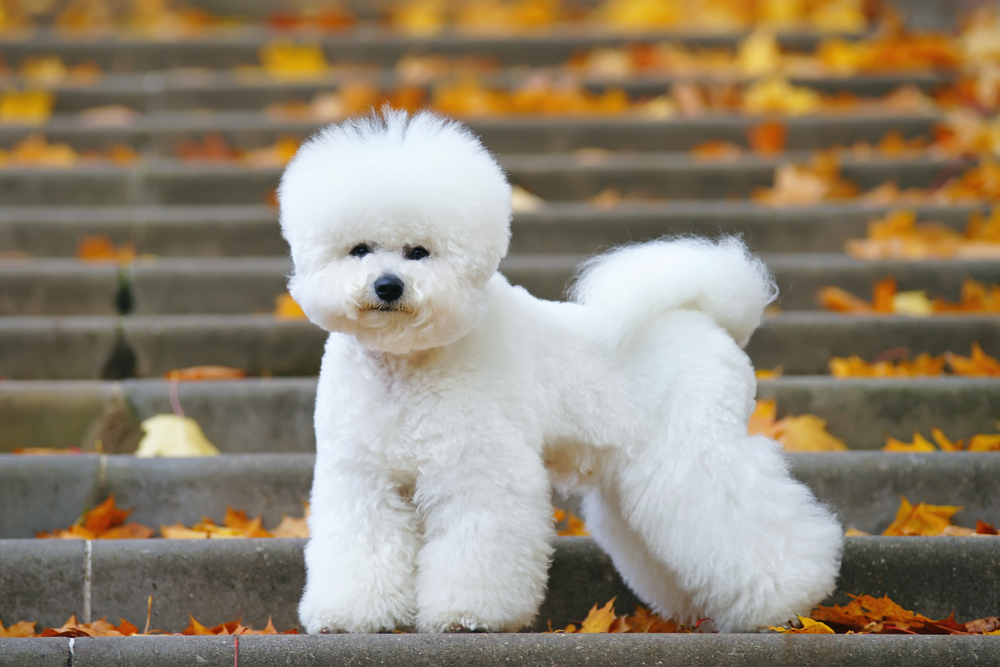
4. They May Develop Knee Issues in Senior Years
Patellar luxation is a common orthopedic condition that affects many dog breeds, including the Bichon Frise. It occurs when the kneecap, or patella, becomes dislocated from its normal position. This can cause pain and discomfort for the affected dog and can potentially lead to further complications if left untreated. Unfortunately, due to their compact body and relatively short legs, Bichon Frises are particularly prone to developing this condition.
This sort of unique anatomy places extra stress on the joints, including the knees. In addition to this, Bichon Frises are known for their lively and energetic temperament, which can sometimes result in excessive jumping and running. These activities can further exacerbate the risk of developing patellar luxation. So, owners should be aware of the signs of patellar luxation in order to seek vet care promptly.
5. Their Appearance Stands Out From Other Breeds
The Bichon Frise is a small breed that usually weighs anywhere from 10 to 18 pounds and is about 9 to 12 inches tall at the shoulder. In other words, they’re pretty tiny. But they have a sturdy and well-proportioned body with a deep and broad chest and a level topline. One of their most distinctive features is their fluffy, white coat, which is soft and curly. This luxurious coat requires regular grooming to keep it looking its best.
Their round, dark eyes are full of expression, and their black button-like nose adds to their adorable appearance. The Bichon Frise has a well-defined stop and a slightly rounded skull. Their ears are dropped and covered with long, curly hair, which gives them a charming and endearing look.
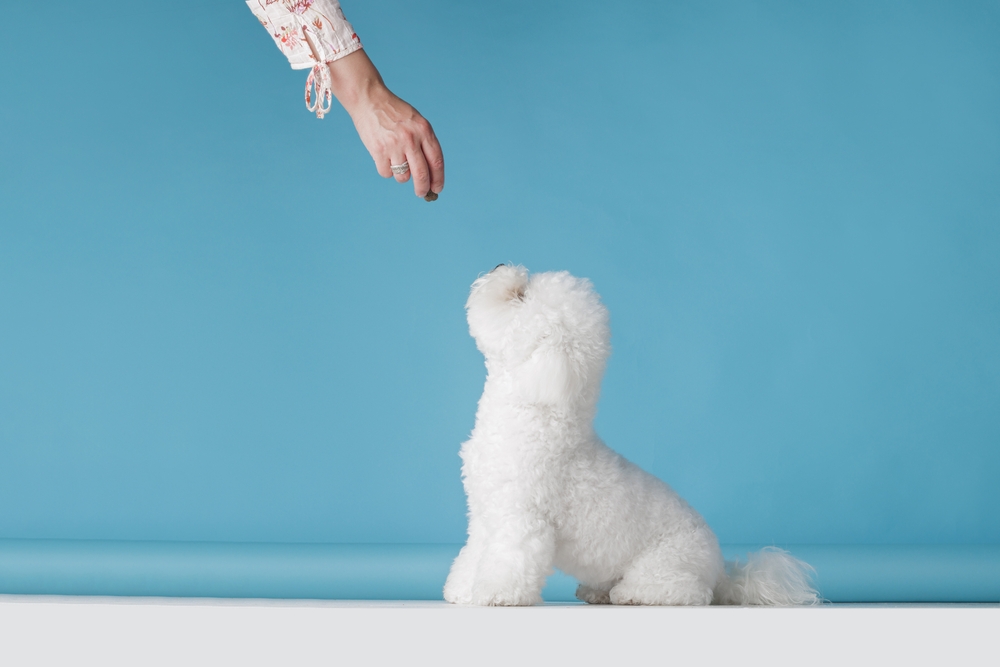
6. Bichon Frises Have Great Personalities
The Bichon Frise is known for their friendly and outgoing personality. They’re incredibly affectionate and thrive on human companionship. These dogs are social butterflies and love being the center of attention. They get along well with children, other pets, and even strangers, making them an excellent choice for families.
These dogs are playful and energetic, always ready for a game or a fun adventure. They have a mischievous streak and are known for their entertaining antics. The Bichon Frise is intelligent and eager to please, which makes training them a relatively easy task. However, they can be a bit stubborn at times, so patience is important when it comes to training them.
Despite their small size, Bichon Frises have a confident and fearless nature. Sort of like the beloved Chihuahua, these dogs aren’t easily intimidated and will stand their ground if necessary. However, they aren’t aggressive dogs and are more likely to lick you to death rather than show any signs of aggression. Their friendly and gentle disposition makes them great therapy dogs, bringing joy and comfort to those in need.
7. The Bichon Frise Is a Great Family Pet
If you’re looking for a dog that will bring endless joy and love to your family, the Bichon Frise is an excellent choice. These dogs thrive on human companionship and are happiest when they are surrounded by their loved ones. They’re great with children and have a patient and gentle nature, making them ideal playmates for little ones.
Bichon Frises are also highly adaptable and can thrive in both small apartments and larger homes. They don’t require a huge yard to run around in, as long as they get regular exercise and mental stimulation. They only need a mere 30-45 minutes of exercise a day. These dogs are always up for a walk or a game of fetch, but they’re also content to snuggle up on the couch with their favorite humans.
They thrive on human interaction and may become stressed or destructive if they’re left alone for too long. So, if you work long hours or have a busy lifestyle, it’s essential to consider whether you can provide enough time and attention for a Bichon Frise before bringing one into your home.

8. They’re “High-Maintenance” Dogs
The Bichon Frise’s beautiful, curly coat requires regular grooming to keep it looking its best. These dogs are considered a high-maintenance breed when it comes to grooming. Their thick, luscious coat is prone to matting and tangles, so daily brushing is necessary to prevent any issues. Using a slicker brush or a comb with wide-spaced teeth will help keep the coat free from knots. Bichon Frises also require professional grooming every 4 to 6 weeks.
This includes a bath, haircut, and nail trimming. Their hair grows continuously and can become overgrown, which can hinder their movement and cause them a lot of discomfort. Regular grooming sessions also help keep their coat clean and healthy.
It’s worth noting that some Bichon Frise owners choose to keep their dogs in a shorter “puppy cut” to minimize grooming requirements. This cut is easier to maintain and can keep the dog more comfortable, especially during hot summer months. So, it can be helpful to schedule a session with a professional groomer to find the best grooming routine for your Bichon Frise based on their coat type and your personal preferences as owner.
If you are looking for the perfect, pet-friendly shampoo and conditioner combo, we highly recommend the products by Hepper. With a soothing oatmeal shampoo, free of soaps and other harsh chemicals, and a cucumber and aloe scented conditioner, your pet's skin and coat will be smooth, hydrated, and irritation-free. At Dogster, we’ve admired Hepper for many years, and decided to take a controlling ownership interest so that we could benefit from the outstanding products of this cool pet company!
Image
Product
Details
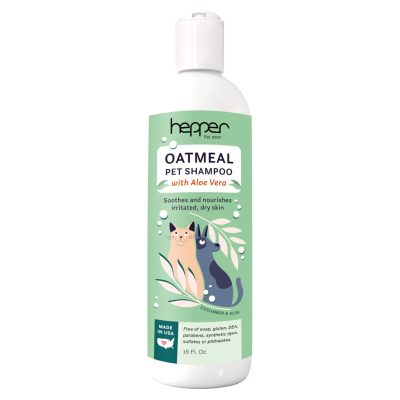
Hepper Oatmeal Pet Shampoo
Check Price
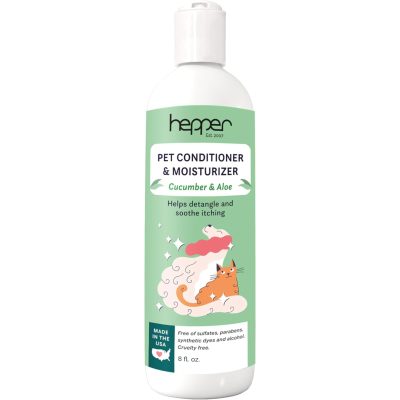
Hepper Pet Conditioner
Check Price
9. Their Intelligence Makes Training Them Easy
Training a Bichon Frise can be a rewarding experience, thanks to their intelligence and eagerness to please as canines. These dogs are quick learners and respond well to positive reinforcement training methods. Early socialization will help them become well-rounded and confident dogs. Exposing them to different people, animals, sounds, and environments will help prevent any fear or anxiety issues later in life. Bichon Frises can be prone to separation anxiety, so it’s important to teach them to be comfortable when left alone. Gradual desensitization and even crate training can be helpful in preventing separation anxiety.
And note that even though they’re smart, these dogs (more so when they’re young) can be a bit stubborn at times, so it’s important to remain calm and persistent. Short, frequent training sessions will yield better results than long, repetitive ones (so aim for about 10 to 12 minutes per session). And remember to keep the training sessions fun and engaging to keep your Frise interested and motivated.
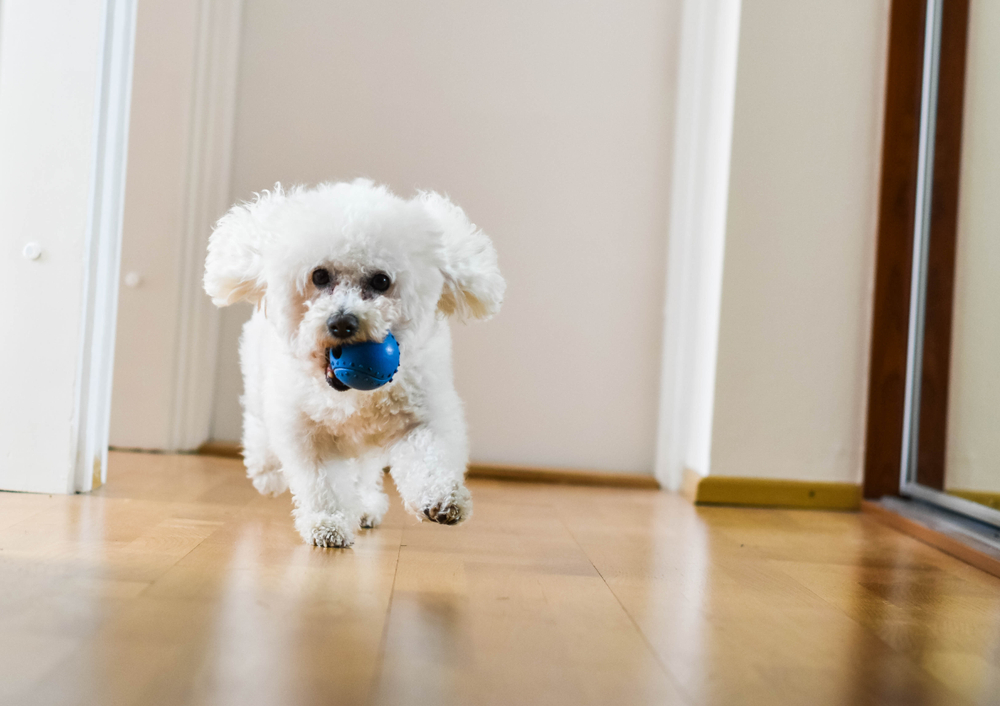
10. They’re Prone to Dental Issues
One common health issue in Bichon Frises is dental problems. Their small mouths and crowded teeth make them more susceptible to dental diseases, such as gum infections and tooth decay. Regular dental care, including brushing your dog’s teeth and providing dental chews or toys, can help keep their teeth and gums healthy.
11. They Often Have Allergy Issues
Allergies in Bichon Frise can manifest in various ways, including skin irritations, respiratory problems, and digestive issues. These allergies can be caused by a number of factors, such as pollen, dust mites, certain foods, or even certain dog shampoos or detergents. In fact, one common allergic reaction with them is skin irritation. This can manifest as redness, itching, rashes, or even hot spots on the dog’s skin.
These signs can be distressing for both the dog and you, the owner. Regular grooming and bathing using hypoallergenic shampoos can help alleviate allergies and skin conditions. It’s also important to keep the dog’s bedding clean and free from dust mites or other allergens.
Respiratory allergies can be triggered by environmental factors such as pollen or molds. Signs may include sneezing, coughing, wheezing, or difficulty breathing. Avoiding exposure to these allergens can help manage these respiratory allergies. Keeping the dog indoors during high pollen seasons or using air purifiers in the home can be effective strategies.
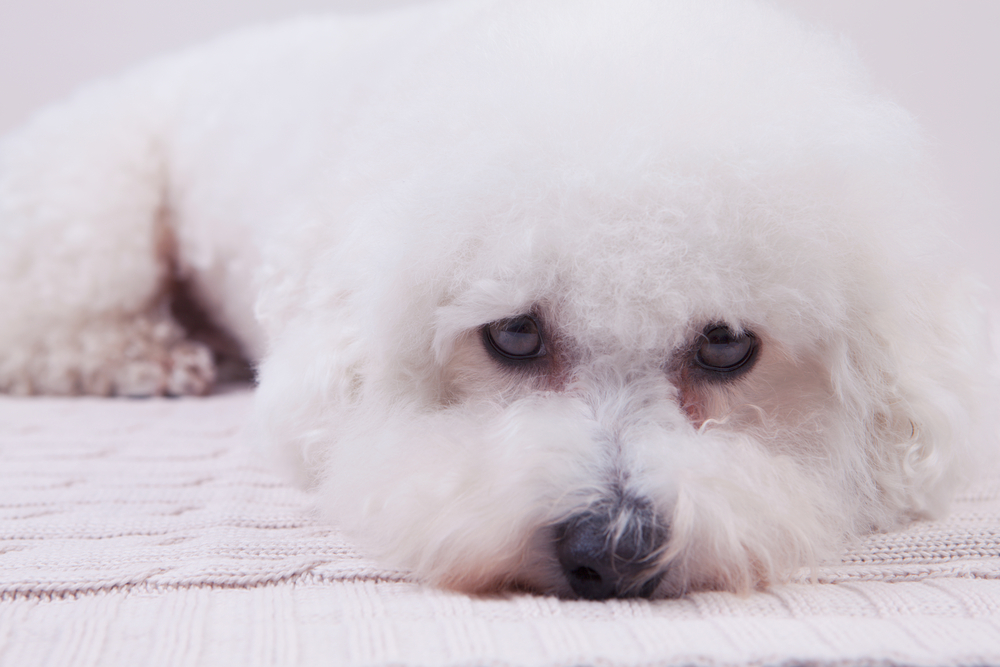
12. The Bichon Frise Is an Excellent Agility Dog
Despite its small size, this breed is remarkably agile and excels in agility training. Bichon Frises are super smart and quick to learn, making them ideal candidates for agility competitions. They’re nimble and very light on their feet, allowing them to navigate through obstacle courses with ease. Their natural athleticism and enthusiasm make them excellent at agility tasks such as jumping, weaving, and climbing.
With proper training and necessary socialization, the Bichon Frise can become a top contender in agility competitions, showcasing its incredible speed, flexibility, and coordination.
13. They Were Favored Among Royalty
During the Renaissance period, Bichon Frises gained immense popularity in the French royal courts. These adorable and fluffy dogs were highly sought after for their charming appearance and friendly demeanor. They were often seen by the side of their noble owners, accompanying them to grand events and social gatherings. The Bichon Frises became a symbol of elegance and luxury, reflecting the excessive opulence of the French aristocracy during that era.
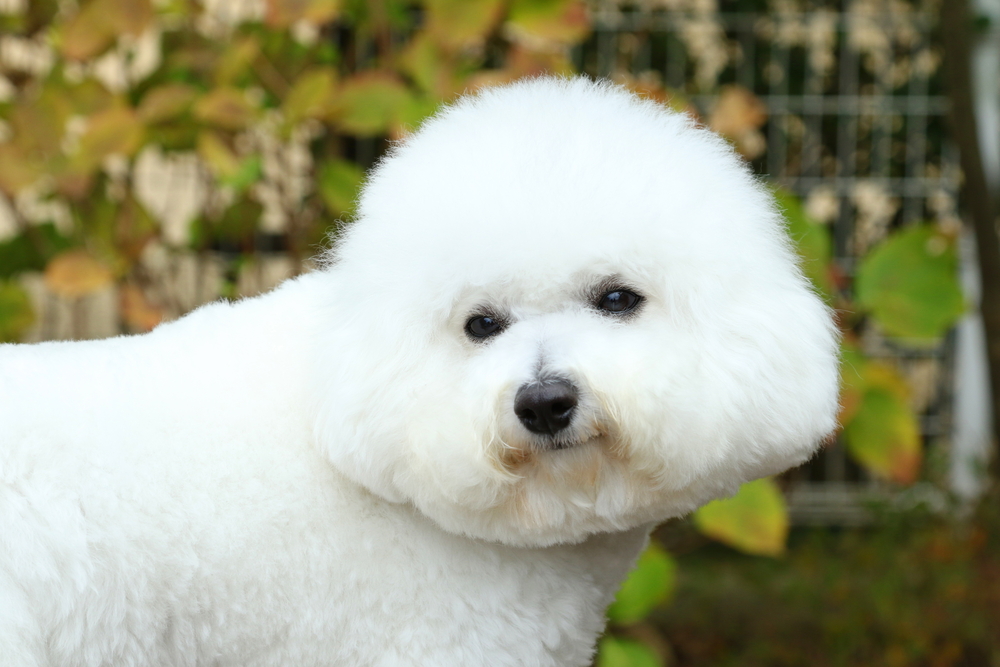
14. They’re Great Companion Dogs
These tiny pups have proven to be excellent therapy dogs, as they possess a gentle and loving nature that makes them ideal for providing comfort and companionship to those in need. These dogs possess a natural instinct to seemingly empathize with human emotions and can quickly sense when someone requires their attention and affection.
They’re particularly well-suited for working with the elderly, as their presence may help alleviate feelings of loneliness and isolation. Additionally, these pups are often used to provide support to individuals with special needs, as they’re super patient, very gentle, and can help promote a sense of calm and security.
15. They Can Live Up to 15 Years
Bichon Frises are also known for their long lifespan, typically living around 12 to 15 years. This means that they can bring joy and love to your family for many years to come. These small and fluffy dogs have a friendly and playful nature, making them great companions for families and singles. Their cheerful disposition and affectionate personality make them a popular choice for anyone looking for a pet that will bring happiness into their lives.
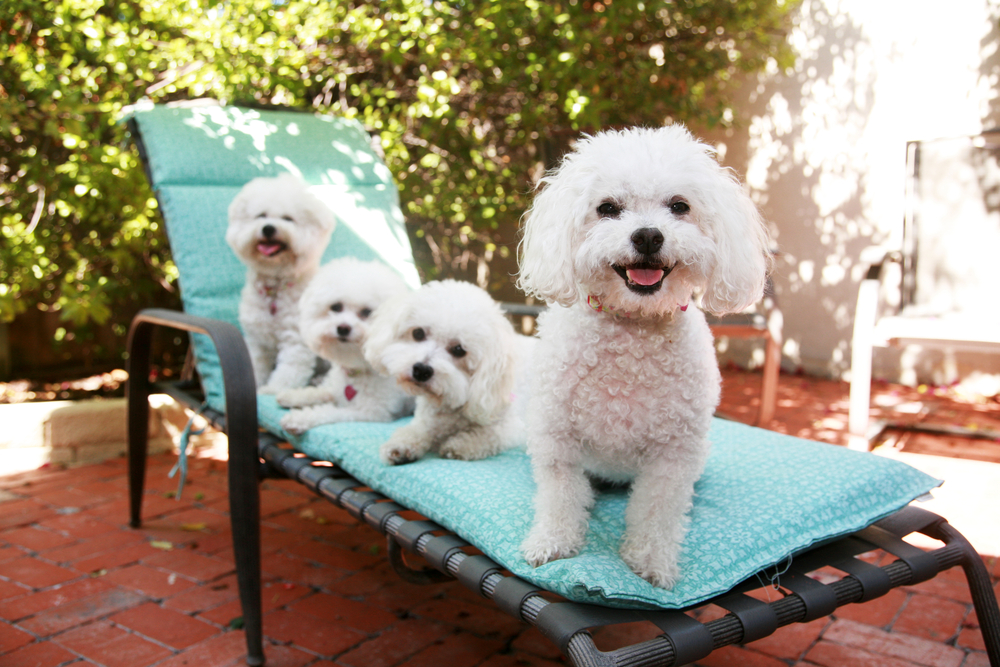

Final Thoughts
So, as you can see from our list of Bichon Frise facts, there are many things to love about the adorable Bichon Frise dog breed. And note that deciding whether a Bichon Frise dog is the right fit for you requires careful consideration of various factors. These small dogs are excellent for anyone looking for companionship, an affectionate dog, and a playtime pal. However, they do require a considerable amount of maintenance and are prone to certain health conditions that you as a potential owner should be aware of. They get along well with kids and other pets, and their high energy levels are guaranteed to keep you wanting to come home to their cheerful faces.
See also:
Featured Image Credit: Vladimir Nenezic, Shutterstock

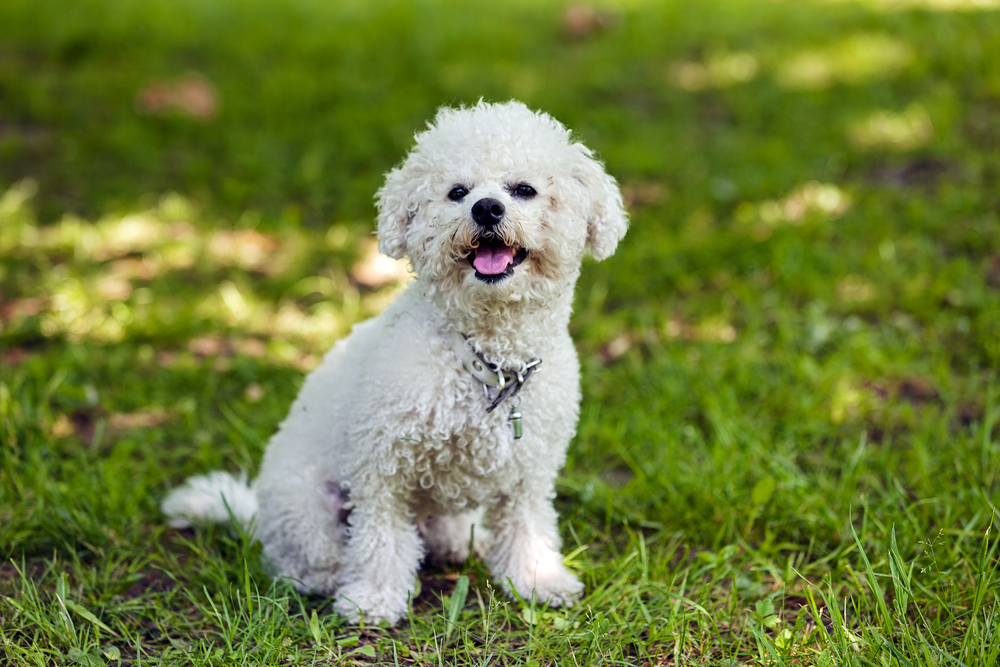


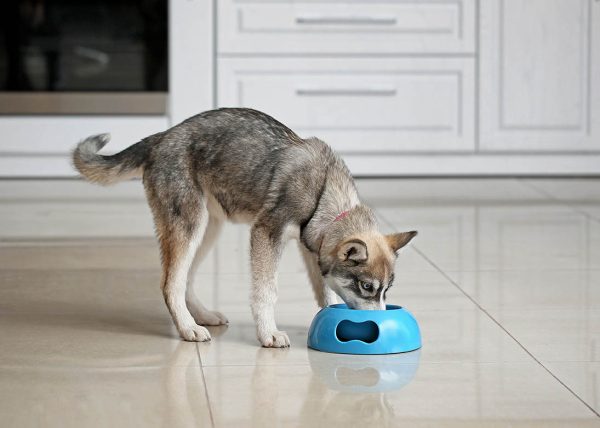

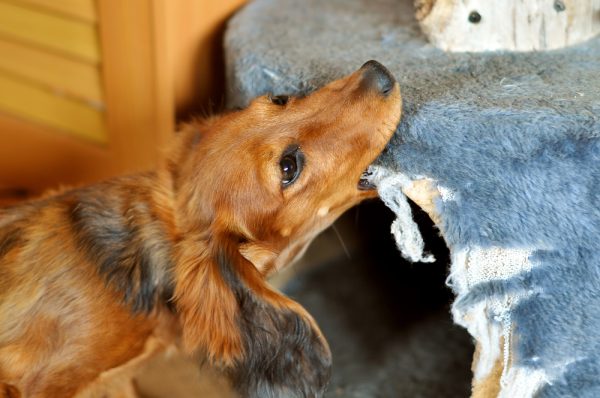


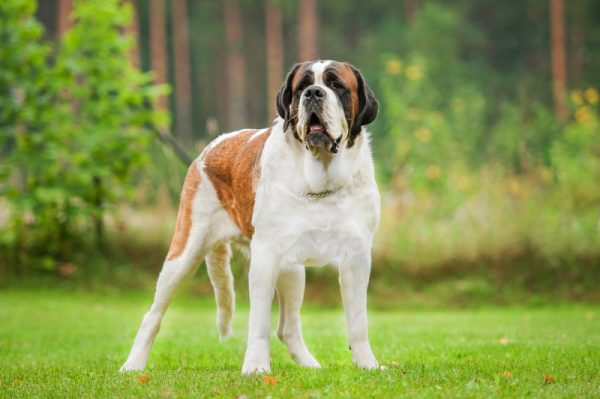


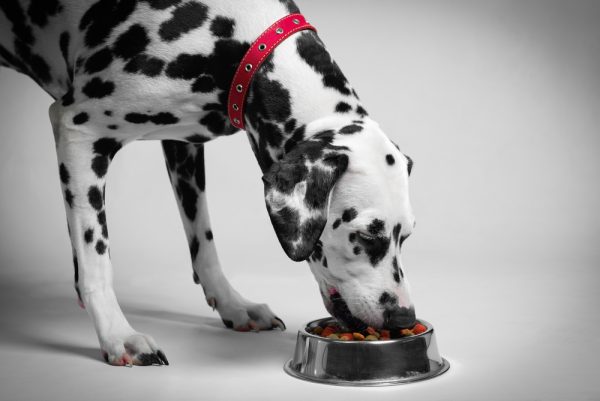
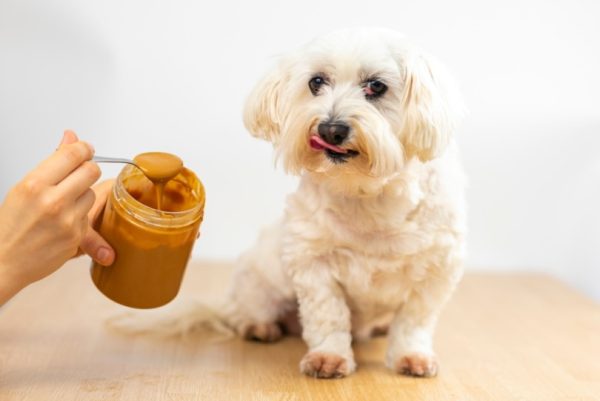
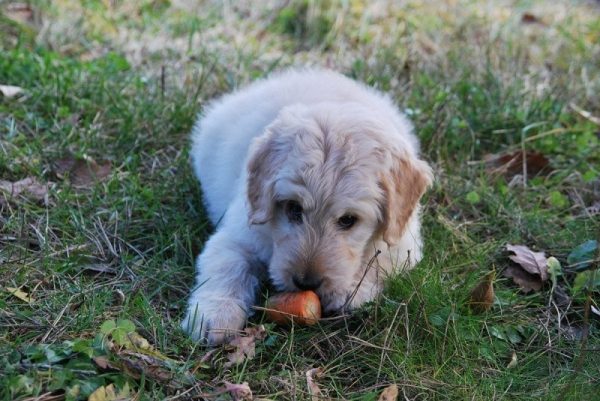






2 Responses
My Bichon is 17, he suffers with dementia. He spends most of his waking time trying to find a tight dark place. He has no ability to reverse, so he cries for me. Dvey tiny space is blocked with cushions, but he still finds somewhere. I have just read that Bichons are eigth on a list of burrowing animals. Have you any knowledge of Bichons burrowing?
Hello Rosemary,
thank you for reaching out to us. It is admirable that you are taking a good care of your Bichon in this difficult situation. There are couple of reasons for your dog's behavior, it could be their "denning" instinct, they may be seeking warmth or it also could be one of the signs of the dementia. However, since this is a medical situation, it would be best to consult this behavior with a veterinarian.
If you would like a quick consultation from your home, you can book an online video call appointment with one of our veterinarians from www.PangoVet.com. They will gladly answer all your questions.
Best of luck!